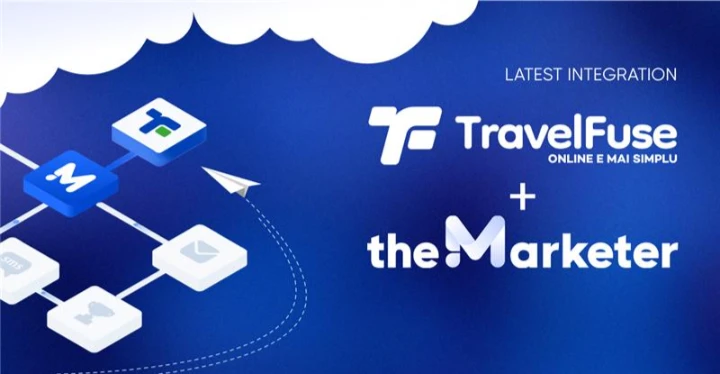Cum obtii fonduri pentru digitalizare in turism si iti modernizezi agentia

Cum obtii fonduri pentru digitalizare in turism este o intrebare fireasca pentru multe agentii care au functionat mult timp in zona offline. Trecerea in digital presupune investitii in tehnologie, platforme, promovare si procese, iar fara un plan clar aceste investitii pot fi percepute doar ca simple costuri.
Realitatea este ca turistii sunt deja online, compara oferte, rezerva rapid si asteapta experiente digitale simple si eficiente. Lipsa digitalizarii nu mai inseamna doar stagnare, ci poate deveni un obstacol real in dezvoltarea agentiei tale.
Ce inseamna digitalizarea unei agentii de turism
Digitalizarea nu inseamna doar un website de prezentare. Ea poate include:
- magazin online de vacante;
- platforma de rezervari;
- sisteme de plata online;
- automatizarea proceselor interne;
- marketing online si analiza datelor.
Pentru multe agentii, accesarea fondurilor de finantare este solutia prin care aceste investitii devin realizabile fara a pune presiune majora pe bugetul propriu.
Identificarea programelor de finantare pentru turism
Primul pas este identificarea programelor potrivite. Exista mai multe surse de finantare dedicate digitalizarii, in functie de profilul agentiei si de obiectivele proiectului.
Printre cele mai frecvente se regasesc:
- programe nationale de redresare si rezilienta;
- fonduri europene dedicate IMM-urilor;
- programe gestionate de institutii guvernamentale din zona antreprenoriatului si turismului.
Fiecare program are reguli specifice care trebuie analizate cu atentie inainte de aplicare.
Conditii de eligibilitate pentru accesarea fondurilor
Eligibilitatea este un criteriu esential. In general, sunt urmarite:
- tipul beneficiarului, de regula IMM;
- activitatea agentiei in domeniul turismului;
- situatia financiara stabila;
- lipsa datoriilor fiscale.
Este important sa verifici cerintele fiecarui program, deoarece pot exista diferente semnificative intre ele.
Documente necesare pentru aplicatie
Dosarul de finantare trebuie pregatit riguros. In mod obisnuit, sunt necesare mai multe categorii de documente.
Documente administrative si legale
- licenta de turism;
- brevet sau certificat profesional;
- certificat de inregistrare;
- documente fiscale;
- acte constitutive si hotarari interne, daca este cazul;
- situatii financiare.
Documente financiare
- bilanturi si conturi de profit si pierdere;
- declaratii privind taxele si impozitele;
- dovada lipsei datoriilor fiscale.
Planul de digitalizare
- descrierea proiectului de digitalizare;
- obiectivele urmarite;
- etapele de implementare;
- bugetul detaliat al investitiei.
- Documente de implementare
- oferte de la furnizori;
- contracte de servicii IT;
- dovezi privind experienta furnizorilor.
In unele cazuri pot fi solicitate si documente suplimentare, precum certificari sau recomandari.
Procedura de depunere si evaluare
Aplicatiile se depun, de regula, online, prin platforme oficiale. Dupa depunere urmeaza:
- evaluarea proiectului;
- analiza impactului digitalizarii;
- verificarea fezabilitatii financiare si tehnice.
Daca proiectul este aprobat, se semneaza contractul de finantare, care stabileste clar obligatiile si termenele de implementare.
Implementarea proiectului si raportarea
Dupa obtinerea finantarii, agentia trebuie sa implementeze proiectul conform planului aprobat. Respectarea termenelor si raportarea periodica sunt obligatorii.
La final, este necesara justificarea utilizarii fondurilor si prezentarea rezultatelor obtinute prin digitalizare.
Un plan bine structurat si respectarea cerintelor cresc semnificativ sansele de succes.
Cum te ajuta TravelFuse in procesul de digitalizare
Pentru ca un proiect de digitalizare sa fie eligibil si eficient, este important sa lucrezi cu furnizori care inteleg specificul turismului. TravelFuse este furnizor de solutii dedicate digitalizarii agentiilor de turism, oferind suport in tranzitia din offline in online.
Platforma permite implementarea unui magazin online de vacante, integrarea rezervarilor, platilor si automatizarea proceselor, toate intr-un sistem unitar. Acest lucru faciliteaza construirea unui proiect coerent de digitalizare, usor de sustinut si de justificat in cadrul programelor de finantare.
TravelFuse sprijina agentiile atat in etapa de planificare, cat si in implementarea efectiva a solutiilor digitale.
Concluzie: fondurile ca accelerator pentru digitalizare
Cum obtii fonduri pentru digitalizare in turism tine de informare, planificare si parteneri potriviti. Digitalizarea nu mai este un avantaj optional, ci o necesitate pentru a ramane relevant in piata.
Cu un proiect bine gandit si cu suportul tehnologic adecvat, fondurile de finantare pot deveni un accelerator real pentru dezvoltarea agentiei tale de turism online.
Distribuie
TravelFuse - magazin online cu oferte integrate
Tot ce ai nevoie pentru o agentie de turism moderna si organizata
Alte articole

TravelFuse x theMarketer: Marketing inteligent pentru agențiile de turism din România
TravelFuse x theMarketer: marketing inteligent pentru agentiile de turism Marketingul in turism nu mai inseamna

Cum să vinzi de Sărbători
Promovare agentie de turism in perioada Sarbatorilor: cum ramai vizibil si relevant Promovare agentie de


